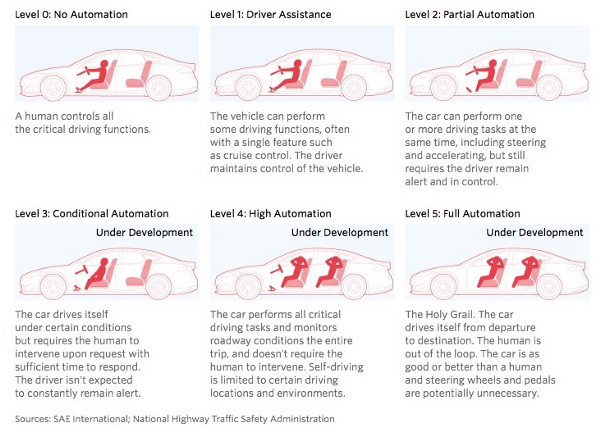Apropos my Observer column, this from Frederic Filloux:
I would love to tell my Tesla to come and pick me up at home in Palo Alto and take me to the Sutter Street parking garage in San Francisco, “any level will be fine”, without intervention. But when will we get there?
If you believe Musk, it’s 2020. If you believe Chris Urmson, Google’s Director of Self-Driving Cars from 2013 to late 2016, it’s going to take three decades or more, although it’s possible that Waymo will ignore Page’s wise Level 5 edict and come out with Level 3 or 4 for a client such as Audi, Mercedes, or BMW well before that. Can we learn to codify partial automation the way we codified MPG, speed, and emissions? Personally, I trust we will, perhaps helped by numbers such as fatalities or, less morbidly, frequency of driver intervention.


